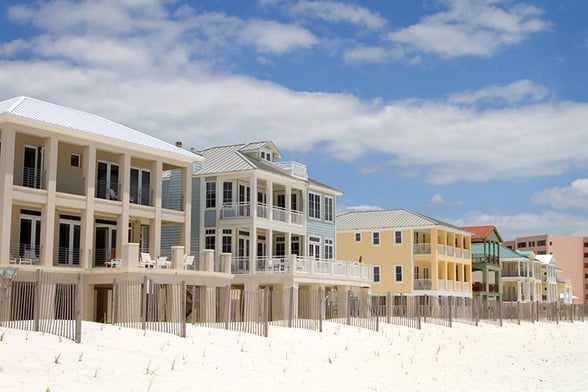
A 1031 exchange is when capital gains taxes might be deferred when used to purchase a like-kind property used for business, trade, or an investment. However, there are a few situations when you might be able to relinquish or purchase a vacation home in a 1031 exchange.
If you have a vacation or secondary home that you plan to convert to an investment, it might also qualify in a 1031 exchange under certain circumstances.
Safe Harbor Law
In most cases, a property used for personal use would not qualify in a 1031 exchange. But, in 2011 the Safe Harbor Law changed the definition of what qualifies in a 1031 exchange and allowed some vacation homes to qualify. If a property meets the criteria to define a safe harbor property, the IRS might not “challenge whether a dwelling unit qualifies as property held for productive use in a trade or business or for investment” in a 1031 exchange.
The key factor that distinguishes what vacation properties might qualify in an exchange is the percentage of time you occupy it for personal use.
For properties being relinquished in a 1031 exchange, the owner should:
- Have owned the property for at least 24-months before you sell it for the exchange.
- Occupy the property personally no more than 14 days in a calendar year, or no more than 10% of the total amount of days you rent the property out at fair market value (FMV).
- Within 12-months, rent the property for fair market value for more than 14-days in the calendar year.
Keep in mind that letting friends and relatives use the property counts as personal use unless they pay a rent comparable to the local fair market rents.
If you want to acquire a vacation home as a like-kind property in a 1031 exchange:
- Own the property for at least 24-months after the completion of the exchange.
- Rent the unit for FMV for more than 14-days in a calendar year.
- Occupy the property for personal use no more than 14-days or 10% of the days it is occupied by a tenant paying fair market rent in a 12-month period.
So, the answer to when a vacation home qualifies for a 1031 exchange varies. It is possible, but the exchange property must meet stringent personal use requirements.
This material is for general information and educational purposes only. Information is based on data gathered from what we believe are reliable sources. It is not guaranteed as to accuracy, does not purport to be complete and is not intended to be used as a primary basis for investment decisions. Realized does not provide tax or legal advice. This material is not a substitute for seeking the advice of a qualified professional for your individual situation. Costs associated with a 1031 transaction may impact investor's returns and may outweigh the tax benefits.



